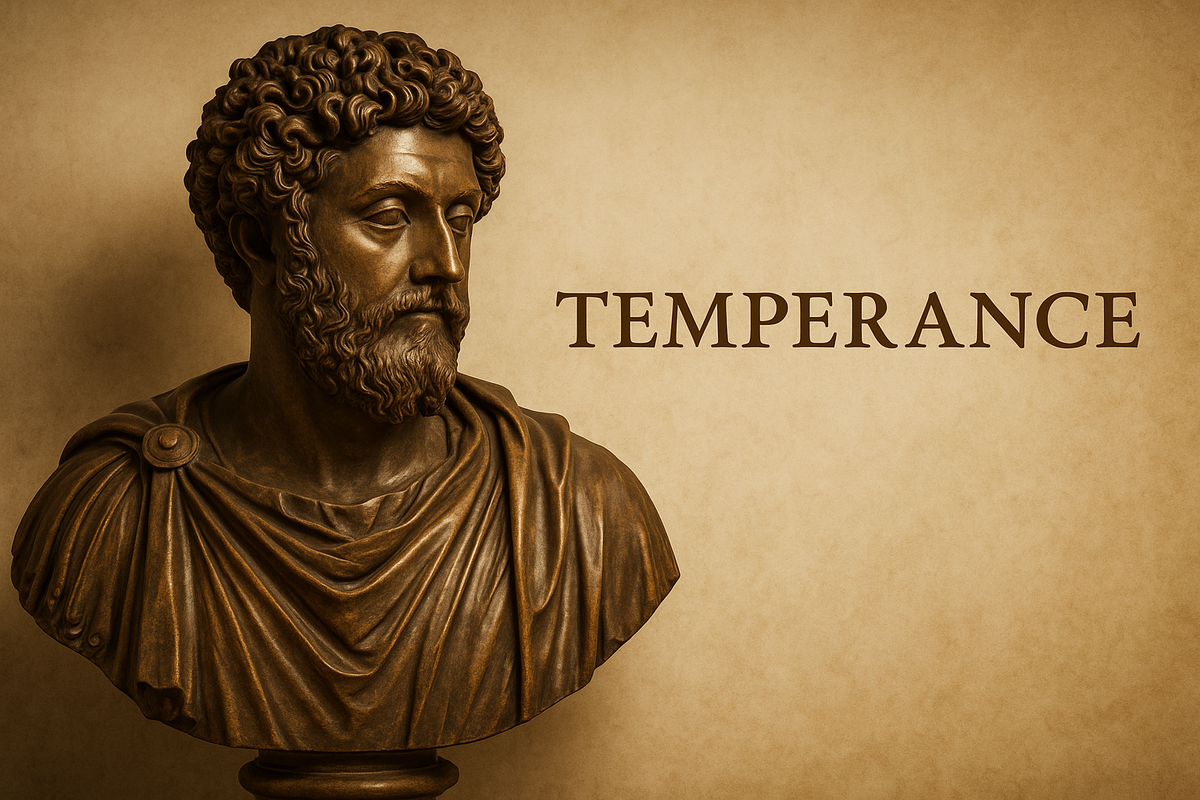The Virtue of Temperance
The first time I truly understood what rage could do to a man, I wasn’t watching the news or reading some philosophical text. I was standing in my own home, unmoored by betrayal.

The first time I truly understood what rage could do to a man, I wasn’t watching the news or reading some philosophical text. I was standing in my own home, unmoored by betrayal.
I had just found out that my first wife was involved with someone else, a friend of a friend. No slow unraveling. No explanation. Just a blunt, soul-jarring truth that hit me like a punch to the chest. I remember the heat crawling up my neck. My hands trembling. My vision narrowing like I was looking through a straw. I don’t remember exactly what I said—I only remember the volume. The force. The aftermath.
I didn’t hit anything. I didn’t throw anything. But my anger filled the room like smoke—suffocating and heavy. And when it cleared, when the adrenaline drained, what remained wasn’t justice or power. It was silence. Emptiness. Shame.
It was much later that I learned something painful and true: unrestrained emotion doesn’t heal. It only scorches what remains.
We live in a time where more is the mantra. More stimulation. More comfort. More outrage. But in chasing more, we’ve lost something vital—temperance.
It’s the quiet virtue. The one nobody puts on a billboard. Temperance doesn’t grab headlines or rack up likes. It doesn't promise six-pack abs or a six-figure income. But it will keep your soul intact when everything else is on fire.
Temperance isn’t about denial. It’s not about self-punishment or asceticism. It’s about control with purpose. It’s the ability to pause before you speak words that can’t be taken back. It’s choosing water over whiskey when you know you’re trying to escape something. It’s the power to enjoy without needing to consume, to feel deeply without drowning.
The Stoics understood this. They didn’t teach us to feel less. They taught us to react better. To rule our desires instead of being ruled by them. To measure strength not by the heat of your fire, but by how well you hold the flame.
In our world of algorithms and excess, temperance is often mistaken for weakness. But it’s not. It’s discipline. It’s grace under pressure. It’s the difference between destruction and growth.
I’ve lost things to a lack of temperance. Relationships. Health. Peace of mind. But I’ve also found myself again through practicing it—imperfectly, but consistently.
Temperance doesn’t dim your fire. It shapes and directs it. It doesn’t make you a passive wimp. It makes you powerful in a way that doesn’t burn others in the process.
If courage is the fire, temperance is the hearth that holds it. If justice is the compass, temperance is the steady hand on the wheel.
We don’t need more noise. We need more calm. More presence. More people who know how to hold themselves when no one else is watching.
That’s what I’m working on now. Not as a master, but as a man who knows what it costs to live without it.
Temperance may be the quietest virtue. But in the long run, it’s the one that sustains everything else.
“No man is more unhappy than he who never faces adversity. For he is not permitted to prove himself.”
— Seneca
